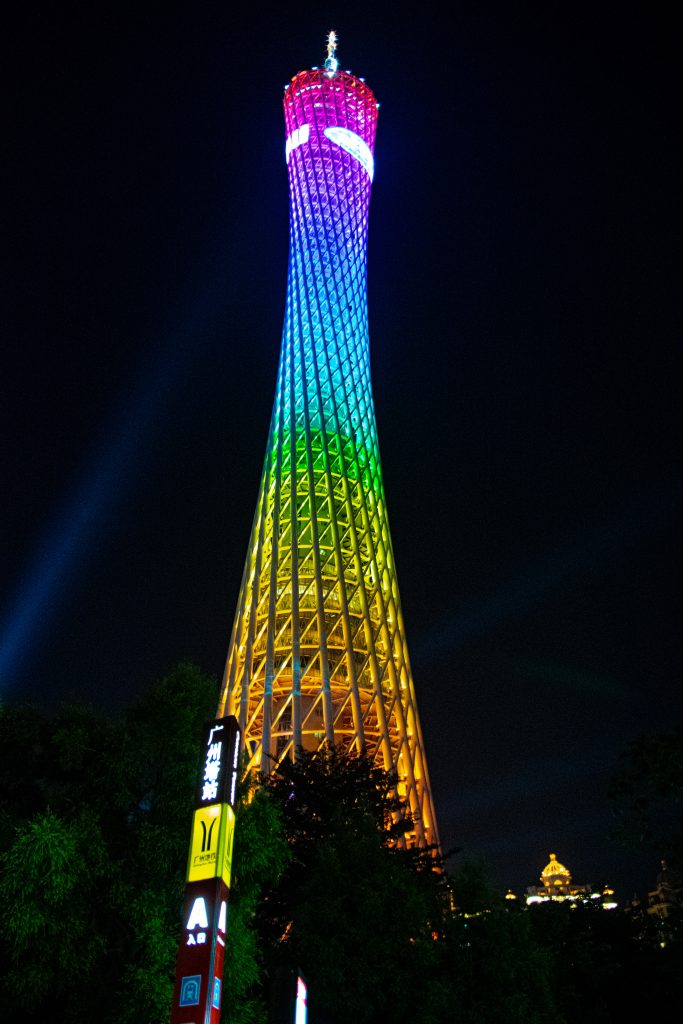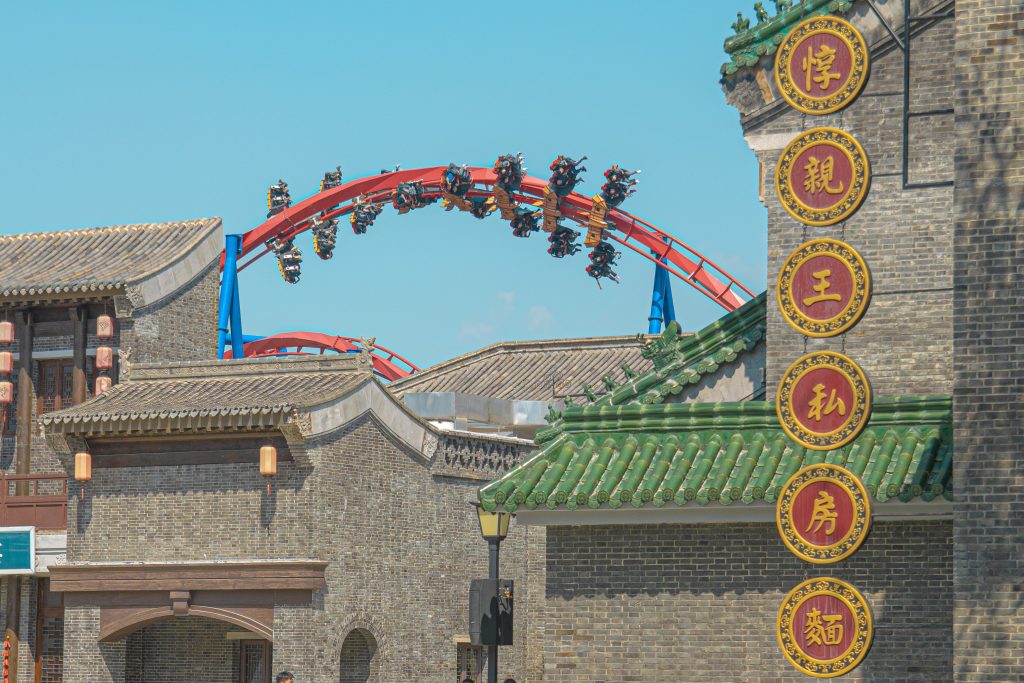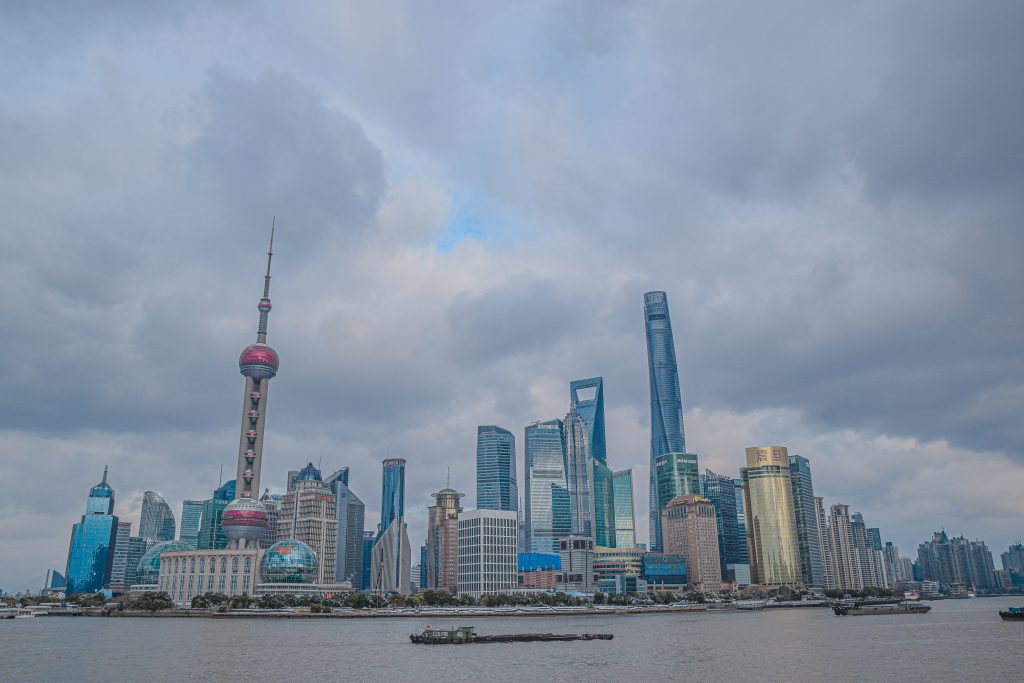In this new series of articles I want to take our experiences and share them with our readers to better prepare them to conquer the (theme park) world. I sat down and started with day-by-day reliving of trips around the world and things we learned along the way that would have been useful to have known beforehand. I think the perfect destination to discuss first is the People’s Republic of China. Whether you’re there just to hit theme parks, or plan on spending time visiting major sites, the tips in this article may really help!
– In the past, many of our images have been posted, featured, and shared on forums, social media platforms and websites around the web. We work hard to provide the coverage that we do, and we encourage our audience to share our content and use our images, BUT ONLY IF proper credit is given to thecoasterkings.com. Thank you! –
HOTELS
Your accommodations are important. Not only do you want a clean place to stay, you will also need to be able to communicate with hotel staff when you’re so far from home. Generally speaking, try use hotel brands you’re familiar with. Most of the World’s largest chains have hotels all over China. Also note that some local hotels may not accept international guests as hotels are required to submit passport information to local authorities upon your arrival. Not all hotels are set up for this. If you stay with well-known Western hotel brands, this shouldn’t be an issue. PRO TIP: Have hotel names and addresses handy in English and Mandarin. Set up a rewards program if you don’t have one, for easier contact with the hotel.

This next process is something that we used ourselves and worked out great. When you’re in China it can be hard to get decent signal, explain yourself, or get directions to the correct location. Using tools like Word or PowerPoint, consider making small cards (half pages) of information and pictures of your destinations/attractions. Make sure the name (and if possible address) is printed in Mandarin and English.
SCAMS
While getting scammed can happen literally anywhere, it’s sometimes hard to detect if you’re being taken advantage of in other regions that you are unfamiliar with. Don’t necessarily let people proposition you into activities that will cost hundreds to thousands of dollars. If it sounds suspicious, it probably is. (Mostly at major tourist sites). In addition, try to know how much products and services cost. Only use officially labeled taxis (every train station, mall, theme park, airport has dedicated taxi stands). Locals will try and see how naïve you are as a foreigner. After a few days you will know how much taxis costs for example, be stern and do not accept overpriced products, services, taxis, etc. and negotiate pricing. This is customary.
TAXIS
We mentioned taxis above, and we use these a lot all around China. We use taxis mostly for convenience. While metros and trains are useful for inner-city travel and cross province travel, for quickest access to parks (not always located near public transit), use taxis, which are quite cheap for western standards. Request hotel concierge to call/schedule taxis for you to your destination so you don’t spend a lot of time explaining where you’re headed. The vast majority of taxi drivers do not speak English. Be aware that even officially labeled taxis may negotiate a higher price than you should really be paying, feel free to try bring the price back down.
TRANSIT INFO
Use sites such as trip.com and China Travel Guide to get real-time train and metro schedules, and to pre-purchase train tickets with English support and instructions. Try avoid buying train tickets last-minute in person as machines, signage, staff language, is all in Mandarin and train station tend to get crowded. Public infrastructure is punctual and is a great solution for traveling long distances (between cities and provinces).

FLIGHTS
Using some of China’s large national airlines, consider flying between major cities such as Beijing, Shanghai, Guangzhou, Chongqing, etc. Major airlines have English speaking staff, as well as routes (flights) between major cities at all times of the day, which makes flying a great option to hit several regions throughout the country. Using websites like Google Flights gives you a great idea of pricing and reliable airlines to assist in trip planning.
TRANSLATE
Have apps on your smart phones that can assist in translating day-to-day questions/info. We prefer using Google Translate (App) has speech functions (easy to use in conversations). The Google Translate App features a camera function that lets you hover over signage in Mandarin/Cantonese and translate in real time. This is great for the inevitable moments where you really need to understand the signage in front of you. (Train stations, theme park info, etc).
IDENTIFICATION
Carry your passport. Despite it being easier to keep it in a safe at the hotel. You will be required to present a passport for train tickets (purchase, pick up, and boarding). Theme parks and attractions may require you to present passports in order to access the attraction or obtain tickets. (Disney, Shanghai Haichang Ocean Park, Canton Tower, etc). Passports are required along with face scans to check into hotels in China.
VPN
Use VPN to access western websites while utilizing a Chinese mobile phone plan or while using any Chinese WiFi. You may have to turn off VPN for functions such as mobile apps that require the use of local WiFi (think Shanghai Disneyland App).

WiFi
WiFi is available EVERYWHERE. However, you usually need a chinese cellphone number. Consider upgrading your US/EU phone plans to allow for roaming in China (Some carriers like T-Mobile include this) so you don’t have to worry about getting a Chinese phone number for your vacation. WiFi in most western hotels or establishments (Marriott, Hilton, Starbucks, etc) will allow connecting without Chinese phone numbers.
NOTEWORTHY VISITS
While this article is geared towards a theme park trip to China, you will want to put aside time to see city centers, temples, noteworthy destinations. Often these destinations are easily accessible with public transit, consider getting a metro-card to refill for regions such as Guangzhou, Shanghai, and Beijing.
CASH
Make sure your debit card is filled up and that travel alerts have been set for debit and credit cards with your banks. Be ready to use credit cards for hotels, debit cards to draw cash every other day or so. Upon arrival to the airport, locate a Bank of China (or Western banks) ATM and take out cash. Do this every other day, ATMs are available in most malls/city centers/resorts, etc. Cash will be used for the majority of your non-lodging spending. In the unique case of having a Chinese bank account, you can use WeChat Pay. Alipay is also frequently used and has abilities to use major international credit cards.
LOCKERS + STORAGE
While this may be a strange concept to the western markets, public transit centers and attractions sometimes have locker centers in Asia. If locker centers are available, they’re a great solution for storing your luggage if you are between hotels and hitting parks/attractions. If lockers are NOT available, most parks have luggage storage centers in Asia, which is a common part of traveling to parks. If you can’t locate a storage center, seek assistance from some sort of guest services office, who may be able to store your luggage or directions to the designated storage center.

PAYMENT
Having cash on you is key, however if you are able to link to WeChat Pay (Chinese Bank Account) or AliPay (works with major credit cards too) this will be useful in some instances. Many self-service ticket booths or vending locations require the use of WeChat Pay. In fact, we ran into that situation more than we didn’t. Then we’d have to locate someone that could accept cash or open the staffed ticketbooth. – There will be in-person ticket booths or guest service locations at all destinations.
MANDARIN
In no way do you have to literally go learn another language in this day and age to travel abroad, however, some basic knowledge goes a long way. Prior to traveling to China, hit some YouTube videos and practice basic greetings (Hello, Thank you, Yes, No) and perhaps some basic counting in Mandarin (numbers will often be communicated verbally, not visibly). It will go a long way with practicality and human interaction!
HOURS OF OPERATION
Unlike the west, much of China (from our personal experience) operates earlier in the day. Parks open early, close early. Transit systems may close prior to what you expect for daily maintenance (think 10pm for Shanghai). Skylines will go dark earlier in the evening as well. Don’t plan late-night visits to skyline sites, you will be disappointed.
SEEKING HELP
From my experience, people are quite approachable if you need assistance. When people are younger or university age, they may even speak English! Using translator apps or basic Mandarin (when needed), you can ask to get taxis arranged, recommendations or directions. Staying at Western hotel brands is a great way to get directions, taxis, services easily in English. It still helps to have pictures, addresses, names in both English and Mandarin to ensure they assist you properly and get you to the actual destination you want to reach.

PLANNING
Book train tickets for longer distances (cross provinces) in advance to ensure to secure tickets, the class you want, the speed/rail you want. Book flights in advanced to make sure you know what airline you’re traveling with. Book hotels in advance to make sure you have optimal location, and brand.
– Many countries can be done with a last minute plan, for China, I advise you have a structure ahead of time. There will be plenty of in-the-moment decisions/diversions/plans.
– Try have buffer days throughout the trip to either relax, or to see some local sights, or in case you get caught up somewhere else and you don’t want your whole trip shifted/ruined. If you feel like planning every day full, prioritize and be willing to sacrifice lower-priority plans if needed.
– Try locate Chinese sites of parks prior to leaving your home country, use browser-extensions to translate info on those sites. It will give you information on operating hours, possible ride closures, and public transportation access. This will help greatly.
POCKETS OF PARKS
Traveling to parks internationally is quite the task. You will want to minimize travel time, and maximize experiences. Here are a list of regions/pockets of parks you can combine on trips to China:
- Shanghai Region: Shanghai Disneyland, Shanghai Haichang Ocean Park, World Joyland, Wuxi Sunac Land, China Dinosaurs Land.
- Guangzhou/Shenzhen Region: Chimelong Paradise, Chimelong Ocean Kingdom, Happy Valley Shenzhen, OCT East (Knight Valley), Guangzhou Sunac Land.
- Hong Kong: Ocean Park Hong Kong, Hong Kong Disneyland (can be combined with Guangzhou/Shenzhen Region).

EXPECTATIONS
Have proper expectations. Simple as that.
- There may be a moment where you miss out on a park due to logistics.
- There is no guarantee the rides you travel for will be open. Be ready to accept some of your bucket list coasters will stay on that bucket list.
- Understand some parks will exceed expectations, some won’t.
- Sometimes it’s hard to get current/accurate info on parks, be ready to just see what’ll happen. (Doesn’t quite apply to western parks like Disney or Universal).
- Turn the navigation of the country and its infrastructure/attractions into an adventure. Despite some rides we wanted to ride being closed, some parks not living up to expectations, the journey itself is infinitely just as important. Have the right expectation and planning and China makes for one of the most amazing destinations on Earth.
I hope that the above info helps with planning a trip to China, mostly once you are actually there. Feel free to reach out to us on social media or via email if you’d like even more info!


